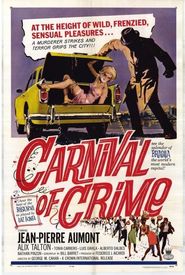Here is the biography of Tônia Carrero:
Maria Antonietta Farias Portocarrero was born in Rio de Janeiro on August 23, 1922. Her father, Hermenegildo Portocarrero, was a military man and math teacher with a lifelong interest in show business. Tônia had two older brothers, both military men and teachers. At a young age, she took an interest in dancing and sports, eventually graduating as a physical education teacher.
In 1940, she married Carlos Thiré, an artist who was already creating comic books. They had one child, the actor and director Cecil Thiré, born in 1943. In 1947, she made her film debut in "Querida Susana" and was credited as Tônia Carrero, a name chosen by her teacher after singing lessons.
Tônia began her stage career in 1949 and co-founded the Tônia-Celi-Autran theater company with Paulo Autran and Adolfo Celi. She became known for her performances in plays by Shakespeare, Goldoni, and other famous authors. In the 1960s, she gained international recognition for her performance in the play "Navalha na Carne," which was banned by the censors.
Tônia's film career was marked by a few notable roles, including "Tico Tico no Fubá" (1952),"Carnival of Crime" (1962),and "Copacabana Palace" (1962). She also appeared in several TV shows and films, including "Pigmalião 70" (1970) and "Água Viva" (1980).
In the 1980s and 1990s, Tônia continued to work in theater and film, appearing in plays such as "Quartett" (1986) and "The Visit" (1986). In the 2000s, she made a comeback in film with "Vinicius" (2005) and "Chega de Saudade" (2007).
Throughout her career, Tônia received numerous awards and accolades, including the Molière Award for her performances in "Navalha na Carne" and "Quartett." In 2007, a theater was named after her in Rio, and in 2008, she received a Life Achievement Award at the Shell Theater Award ceremony.















